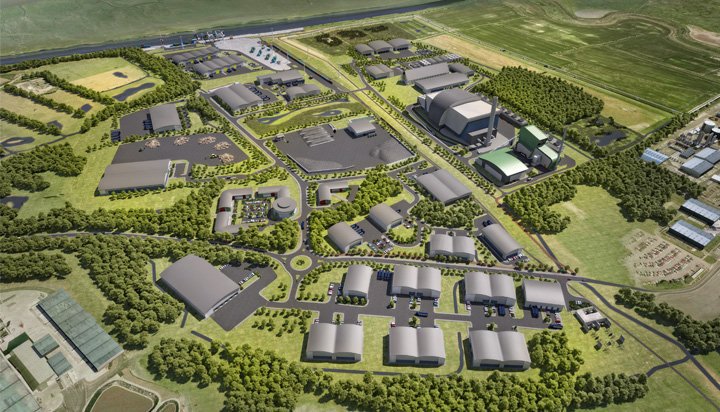PowerHouse Energy Group plc (LON: PHE), the UK technology company pioneering hydrogen production from waste plastic, has today announced that it has entered into a collaboration contract with Peel Environmental and Waste2Tricity Limited to seek to develop a minimum of 10 further sites in the UK for DMG® facilities, in addition to the previously announced project at Protos Energy Park.
Peel have a strategy to develop “Plastic Parks” where waste plastics are recycled and regenerated. Peel’s plans involve bringing together potential counterparties for waste, power and hydrogen with a nett negative CO2 contribution for each site.
The PHE DMG® technology has been evaluated by Peel over the past 30 months and Peel have now committed that the DMG® process will be the key component of each facility and a cornerstone of each Peel “Plastic Park”. DMG® will be the enabling technology to ensure there is no plastic to landfill from these sites by regenerating the waste plastic into power and hydrogen.
Peel will be bringing their land bank, industrial real estate and infrastructure support to the consortium. PHE has an agreement with W2T enshrined in the Collaboration Contract under which W2T will act as project developer for each project and Peel will provide support to W2T with ongoing engagement with funders, with the intention of securing funding for the pipeline of 11 projects from institutional investors. PHE will be contracted to each project under development to provide the engineering, delivery, operation and licensing of the DMG® technology.
David Ryan, CEO of PowerHouse Energy Group, commented:
“This contractual agreement represents a substantial commitment from Peel to the wider deployment of DMG® Energy Recovery Technology in the UK. Their commitment to commercial and funding engagement is an important step for PHE. Peel will aid the roll out of the technology and importantly they share our vision of the great potential arising from the distributed hydrogen economy
We are hugely encouraged by the fact that we have demonstrated our technology to Peel over an extensive due diligence period and we have met the Peel criteria, not only technically but, more importantly, commercially. As one of the UK’s largest industrial landowners, Peel’s vast land bank, their expertise and their blue-chip counterparties committed to plastic recycling and hydrogen usage enable us to look forward to successful delivery of the projects under this contract and beyond.”
Myles Kitcher, Managing Director of Peel Environmental commented:
“Hydrogen is increasingly being seen as a vital part of our journey to zero carbon. This deal could be transformational in delivering a UK first technology that can generate local sources of hydrogen but also provide a solution to plastic waste. As a business we’re looking at solutions for all plastics with a vision for these facilities to sit alongside recycling and recovery.
“We’re pioneering this solution in the North West but local authorities across the country could benefit from a more sustainable way to treat waste plastic, whilst also creating a local source of low carbon transport fuel which could help them meet their climate change targets.”
John Hall, Managing Director of W2T commented:
“As pioneers of the low carbon distributed Hydrogen Economy we are delighted to see this collaboration with Peel Environmental, who have recognised the importance of hydrogen as a fuel for the future. Along with utilising a circular economy, this innovative technology will undoubtedly play an important role in helping the UK meet its net-zero carbon emissions by 2050, whilst tackling the country’s problem of how to dispose of waste plastic.
This agreement is an important first in the industry and exemplifies the circular economy. Here at Waste2Tricity we recognise the importance of moving away from a linear economy and embracing ways of working which minimises waste. Along with the magnitude of this project and a formal collaboration with Peel, we expect there will be increased investor interest who want to support this revolutionary technology across the UK.”







































